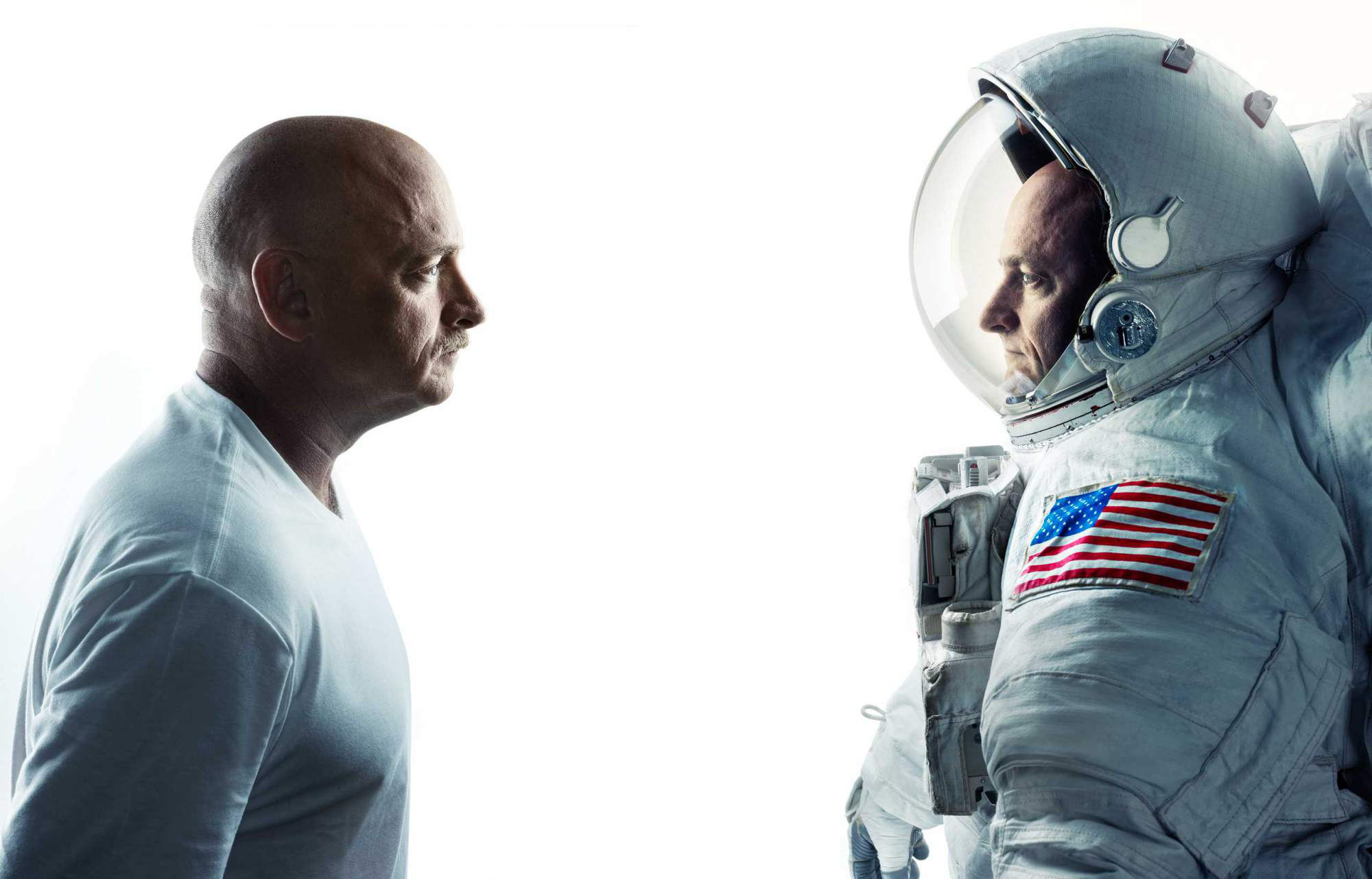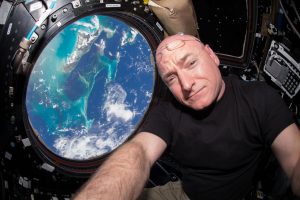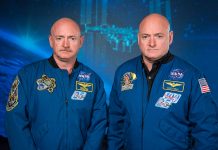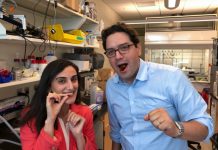Living in space can take its toll on our health. And while NASA already knows a lot about the effects it can have on our muscle mass, eyesight, and motor functions, they wanted to take a closer look at the cellular level.
Now they have some first clues at what kinds of changes they can expect to see using data pulled from identical astronaut twins Scott and Mark Kelly. Scott spent almost a year living aboard the International Space Station in 2015 and 2016 while Mark remained on Earth.
“We realized this is a unique opportunity to perform a class of novel studies because we had one twin flying aboard the International Space Station and one twin on the ground,” says Craig Kundrot, Ph.D. and deputy chief scientist of NASA’s Human Research Program. “We can study two individuals who have the same genetics, but are in different environments for one year.”
The twin astronauts submitted samples before, during, and after the mission for NASA’s twins study. This means there’s a lot of information researchers will need to wade through and it may be a couple more years more before they can fully interpret all the data. But they do have some initial findings they can share now.

In a surprise, researchers found Scott’s telomeres were longer than his brother’s. Telomeres are protective caps on our chromosomes that shorten over time and cause the age-related breakdown of our cells. If anything, researchers thought they would shrink faster in Scott than his Earthbound brother.
Now that he’s back, Scott’s telomeres have shrunk back down to normal but researchers are now studying the telomeres of other astronauts to see if there’s a pattern. Telomere erosion could come with long-term health effects so it’s important to know what might happen to them for long space missions – like one going to Mars.
Researchers also observed Scott’s DNA methylation – a chemical marker in DNA that affects gene expression – decreased compared to Mark’s during his time in space. They’ve since returned to normal upon return but researchers will need to dig into the findings more to understand their implications.
Other changes to the gut microbiome was expected due to the twins’ different diets. Scott also came back to Earth with a slightly reduced decrease in speed and accuracy. But it was only a slight change and researchers aren’t worried about any real impact to cognitive performance.
It’s hard to say at this point how much of the changes they observed between Mark and Scott are generalizable to others. But it does say a lot about what could happen at the microscopic level. And now that NASA has all this information, we could eventually see custom tailored medicine for each astronaut on long-term missions.











